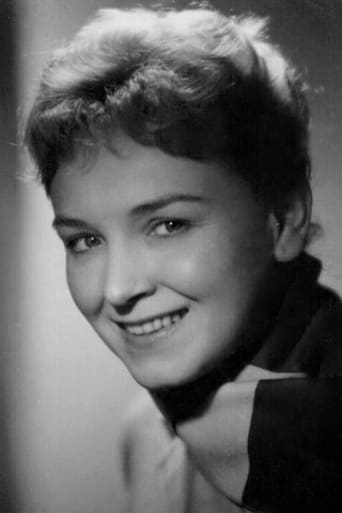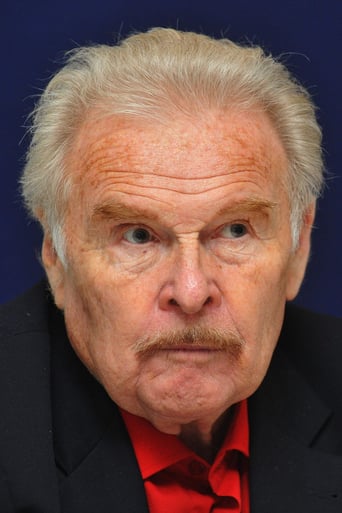Marketic
It's no definitive masterpiece but it's damn close.
XoWizIama
Excellent adaptation.
Nayan Gough
A great movie, one of the best of this year. There was a bit of confusion at one point in the plot, but nothing serious.
treywillwest
This film, one of the most celebrated of the Czech New Wave, is often commended as a bravely anti-communist work. I do not agree with that assessment. This film was produced by a state-run, Party controlled studio. It attracted a great audience to the state-run cinemas of the time. While it certainly details the injustices and abuses of the Stalinist era in the Eastern Bloc countries of the late '40s and early '50s, its most sympathetically portrayed character is not the once-purged-now- successful revenge-bent scientist at the center of the narrative. Rather, the most impressive character we see is the main character's rival and target: a once proud idealist who danced seductively to the traditionalist folk-hymns embraced during the enactment of Czeck socialism, and who partook in the Stalinist committees popular at the time, he now teaches Marxism to the sex-and-drugs celebrating children of the late '60s and embraces their cultural revolution. The cynical "protagonist" knows only anger over past wrongs, which is to say resentment. The commie true-believer moves forward with history and its evolving paradigms of love and joy. I would define this film as a Nietzschean, rather than as an anti-Marxist (or Marxist) work.
Boris Todorov
Kundera is one of the most enjoyable Central/East European authors of the post-war period and that is because he wrote a number of books with a very simple, and flavorful, message: we fight totalitarianism by simply not caring about it; adultery is one very good way to be a dissident. Ludvik Jahn served in a non-combatant military unit, then spent a year in a prison (without conviction) and had to work for six years in the mines (for lack of university degree) just because his colleagues and Party comrades took very seriously a stupid joke he wrote to his beloved for absolutely personal reasons. Jahn's revenge had to take the form of a joke because his major concern was namely that: how could these men take so seriously an innocent charade? Yet, his joke turned out bad: instead of humiliating Pavel, the once leader of the students' party organization, by seducing his wife, Jahn humiliated the innocent, and naive, woman, broke the heart of her young suitor and, most unfortunately, had to realize that Pavel, the allegedly serious communist, fared much better in the field of adultery: enjoying the company of 20-year old attractive students who have absolutely no notion of Marxism and the construction of socialism. It is through this realization, and not so much through his earlier ostracization, that Ludvik is confronted with the consequences of his own misplaced joke. His lonely protest against the system failed.ADDED IN 2009: now, that Kundera was revealed to have himself denounced a "capitalist spy" to the police authorities and thus contributed to the long-term prison/correction camp sentences of several people, this book/movie develops in an unexpected dimension. Was it a deliberate, or subconscious way for Kundera to deal with his own guilt, a way to explain to his younger self that what he did, apparently out of good faith and sense of civic duty, at the age of 20, seemed nothing but utter stupidity at the age of forty?
arthurpewty
A movie adaptation that succeeds by remaining true to the novel's theme while telling the story with an exciting new structure and style. As opposed to the novel's use of more conventional flashback passages, in the film the past seems to attack Ludvik Jahn -- played brilliantly by Josef Somr of CLOSELY WATCHED TRAINS -- from all sides, as the past echoes inescapably through the world of the present. It also doesn't hurt, I suppose, that Kundera himself co-wrote the screenplay.
zardoz12
Banned for many years in Czechoslovakia, "The Joke" is centered around Ludvik Jahn, at present some sort of doctor at an ill-defined institute, but in the past (the early Fifties of Klement Gottwald, first Czech communist president) a college student in Prague. Jahn, who could win a Bob Newhart look-alike contest, thinks that the past is over, but gets a rude shock when his old college flame (the baggy Helena) shows up as a radio reporter for an inteview. This meeting reawakens Ludvik's plan of revenge against Helena and her future husband Peter, because Peter began charges of anti-communism against Jahn after Ludvik sent Helena a joke postcard. For this, Ludvik was expelled from college and the communist party and had to serve in a military punishment battalion and a couple years of hard labor. Before this point, all the flashbacks are from Jahn's point of view; after, we get to see our protagonist with more hair as he is pointlessly drilled by sadistic sergents and digs out granite in a quarry. His revenge is simple; cuckold Peter by starting an affair with Helena, then dump her. However, things do not go as planned... Without the political undertones, "Zert" would be a typical example of the "manage a troi" picture Europe was cranking out during the sexual revolution. However, it's a cold film, sterile and controlled from the the first frame to the last, reflecting the social frustrations of the era. Nice monochromatic cineamatography, though.






